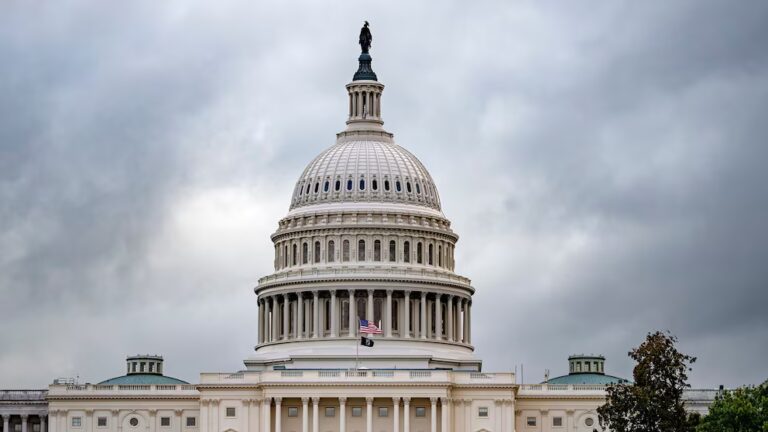LITTLE ROCK, Ark. — Nearly 70 years after the Supreme Court ordered an end to racial segregation in America's schools, federal officials in Little Rock, Arkansas, have unveiled a new monument to an often overlooked but critical chapter in the fight to make integration a reality.
Last month, an extensive renovation and era-faithful restoration of the courtroom of Judge Ronald N. Davies, who ordered a group of nine Black students known as the "Little Rock Nine" be allowed to enroll in Little Rock Central High School, was completed by the General Services Administration and the U.S. District Court to honor his courage.
"My Court's vision of this is that it will be a living memorial to the rule of law," said Chief Judge D.P. Marshall of the Eastern District of Arkansas, who presided over the commissioning of the restored courtroom and gave ABC News cameras rare inside access.
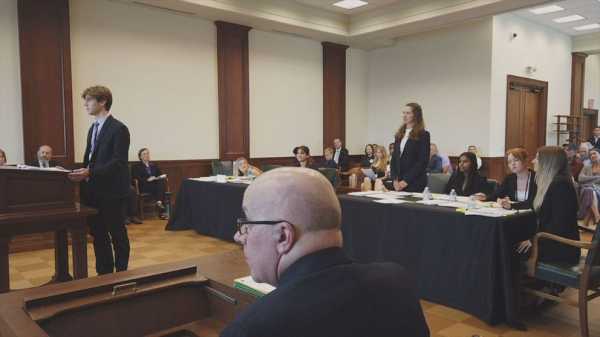
High school students compete in the National Mock Trial Championships inside the newly renovated and restored historic courtroom of the late federal Judge Ronald N. Davies.ABC News
It was reopened in time to host the 2023 National Mock Trial Championship, which drew hundreds of students from 43 states to Little Rock and into Davies' courtroom.
"If you think about our city prior to 1957 that system of oppression was in full force," said Jordan Tinsley, who chairs the Arkansas Mock Trial Foundation. "And then the courts intervened and that turned the tide."
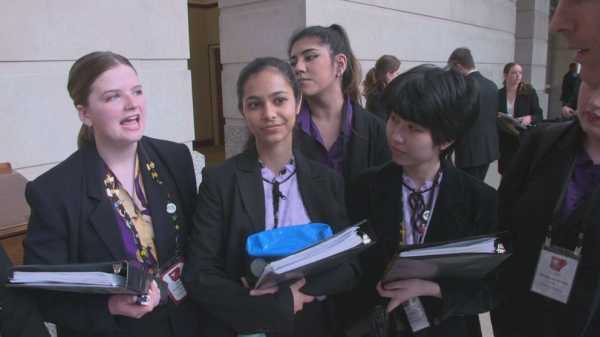
Hundreds of high school students from 43 states convened at the federal district courthouse in Little Rock, Ark., in May 2023 to compete in the National Mock Trial Championship.ABC News

Jonathan Fredericks of Ft. Worth, Texas, says his high school mock trial program has instilled appreciation for the rule of law and American history.ABC News
The meaning of the rule of law carries added significance in Little Rock, Tinsley said. We're "learning about the importance of the judicial system and the historical context of that as well," Jonathan Fredericks, one of the student competitors from Ft. Worth, Texas, told ABC News.
One of the Little Rock Nine, Elizabeth Eckford, 81, returned to Davies' courtroom during the competition for the first time since her testimony in 1957.
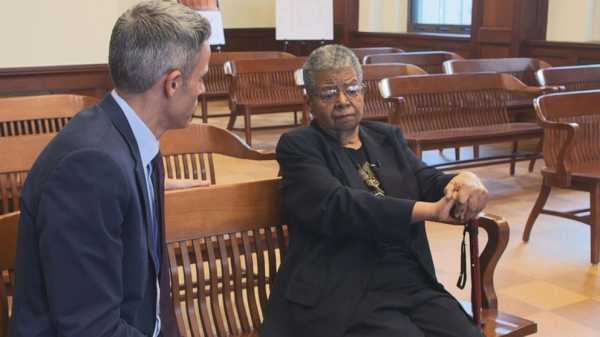
Elizabeth Eckford, 81, a member of the Little Rock Nine, testified publicly in 1957 about her experience attempting to integrate the city’s all-white Central High School.ABC News
While the unanimous 1954 decision in Brown v. Board of Education declared "separate but equal" policies unconstitutional, resistance to the high court's judgment remained widespread across the South for years later. The cultural battle came to a head in 1957 in an Arkansas courtroom when nine black students gave gut-wrenching testimony about being denied access to school, and Davies ordered state officials to immediately back down.
"I was not being admitted," recalled Eckford, who bravely told Davies of her attempt to enter the city's Central High. "I heard somebody say, 'Hang her! Get a rope! Drag it over a tree.' And other people in that crowd were threatening me. It was tremendously frightening."
Despite intimidation and threats on his own life, Davies — a transplant from North Dakota on temporary assignment to the Eastern District of Arkansas — did not flinch. And in the days that followed, then President Dwight Eisenhower dispatched troops to Central High to back him up.
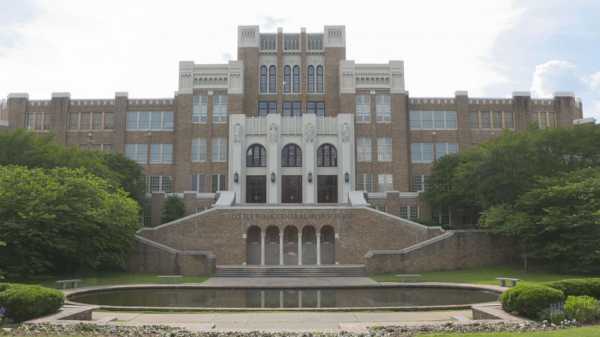
Little Rock Central High School was the site of a turning point in American civil rights history when in 1957 nine black students tried to attend classes following the Supreme Court decision striking down “separate but equal” policies of racial segregation.ABC News
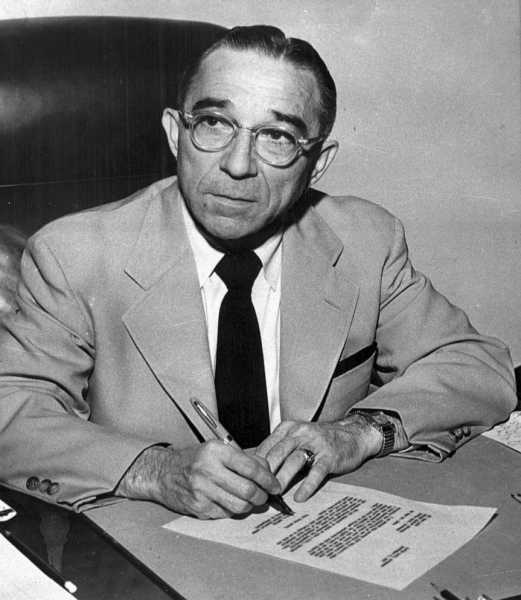
Ronald N. Davies, who in September 1957 ordered the integration of Little Rock Central High School in Arkansas, is seen on Sept. 7, 1957.AP, FILE
"There was no way the governor of any state was going to interfere with the pronouncement of the Supreme Court of the United States," Davies recalled two decades later. "If he had been able to frighten me down there … every other southern state [would have] raised a little ruckus, delayed integration."
Davies' defense of the rule of law, in tandem with the courageous actions of the Little Rock Nine, is being hailed as a pivotal turning point in American history deserving of greater attention.
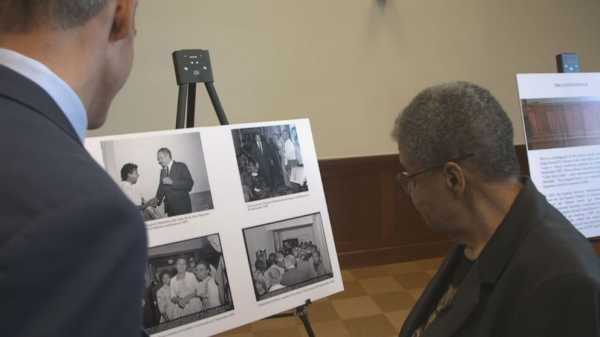
The General Services Administration and U.S. District Court for the Eastern District of Arkansas renovated Judge Ronald N. Davies’ historic courtroom in Little Rock and restored it to an era-faithful presentation.ABC News

Nine black high school students, known as the Little Rock Nine, fought to integrate Little Rock Central High School in 1957 with help from a little-known federal judge named Ronald N. Davies.ABC News
"Judge Davies was a brave, brave man," said Art Phillips, a North Dakota filmmaker who produced a documentary on Davies' life. "With him upholding the law and [the students'] determination that they wanted to go to school, it's just a beautiful part of our civil rights history."
Chief Justice John Roberts featured Judge Davies' story in his year-end message to the federal judiciary, announcing that the bench from which Davies presided would be restored in Washington and displayed this fall in a special exhibit at the U.S. Supreme Court.
"Judicial opinions speak for themselves, and there is no obligation in our free country to agree with them," Roberts wrote. "The judge was uncowed, and happily so were others who stuck up for the rule of law – not just with regards to the judge, but to even greater threats against the schoolchildren."

The Richard Sheppard Arnold United States Courthouse in downtown Little Rock, Ark., hosted the 2023 National Mock Trial Championship.ABC News

Elizabeth Eckford, 81, returns to the federal courtroom where in 1957 she joined then-NAACP attorney Thurgood Marshall in asking a judge to order state officials to admit the Little Rock Nine to the city’s all-white Central High School.ABC News
Eckford said she hopes the lessons of that time will be taken to heart.
"Every voice in the community is important. Each of us was responsible for the kind of community we have. There's a lot of people who were silent who think that that was virtuous," she said. "But being silent is a decision that allows bullies to do what they do."
Sourse: abcnews.go.com

